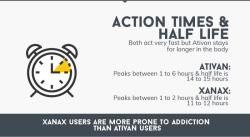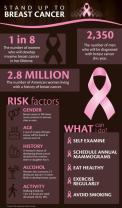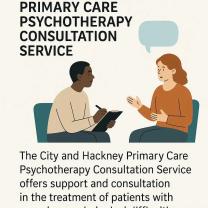What is the best therapy for OCD and anxiety?
When it comes to treating Obsessive-Compulsive Disorder (OCD) and anxiety, several therapeutic approaches have proven to be effective. The choice of therapy often depends on individual preferences, the severity of symptoms, and what works best for each person. Here are some effective therapeutic approaches for OCD and anxiety:
Cognitive-Behavioral Therapy (CBT):
- Exposure and Response Prevention (ERP): Considered the gold standard for treating OCD. ERP involves gradually exposing individuals to their fears (exposure) and preventing the usual compulsive response. Over time, this helps reduce anxiety and the need for compulsive behaviors.
- Cognitive Therapy: Focuses on identifying and challenging irrational thoughts and beliefs that contribute to anxiety and OCD symptoms.
Acceptance and Commitment Therapy (ACT):
- Focuses on accepting uncomfortable thoughts and feelings while committing to actions aligned with personal values. It helps individuals live a meaningful life despite anxiety or OCD symptoms.
Mindfulness-Based Therapies:
- Mindfulness-Based Cognitive Therapy (MBCT) or Mindfulness-Based Stress Reduction (MBSR): Techniques that teach mindfulness and meditation to manage intrusive thoughts and reduce anxiety.
Dialectical Behavior Therapy (DBT):
- Initially developed for Borderline Personality Disorder, DBT incorporates mindfulness and cognitive-behavioral techniques to manage emotions, improve interpersonal relationships, and handle distressing situations.
Exposure Therapy:
- Besides ERP, exposure therapy techniques can be adapted for anxiety disorders. Systematic desensitization and graduated exposure can help individuals confront fears gradually and reduce anxiety.
Psychodynamic Therapy:
- Explores unconscious thoughts and conflicts that might contribute to anxiety and OCD symptoms, aiming to uncover underlying causes and patterns of behavior.
Medication Combined with Therapy:
- In some cases, medication (such as SSRIs - Selective Serotonin Reuptake Inhibitors) is used in conjunction with therapy to manage symptoms. Medication can help alleviate some symptoms, but therapy is often recommended for long-term management.
It's essential to work with a qualified mental health professional to determine the most suitable therapy or combination of therapies based on individual needs. Additionally, self-help strategies, lifestyle changes, and support groups can complement therapeutic approaches in managing anxiety and OCD symptoms effectively.
Obsessive-compulsive disorder (OCD) and anxiety disorders are common mental health conditions that can significantly impact an individual's quality of life. Fortunately, there are effective therapies available for managing these conditions and reducing their symptoms.
1. Cognitive Behavioral Therapy (CBT):
CBT is considered the gold standard treatment for OCD and anxiety disorders. It focuses on identifying and modifying unhelpful thoughts and behaviors that contribute to these conditions. CBT techniques include:
Exposure and Response Prevention (ERP): ERP involves gradually exposing individuals to situations or thoughts that trigger their OCD or anxiety while preventing them from engaging in their usual compulsive behaviors. This process helps individuals break the cycle of avoidance and learn to tolerate anxiety.
Cognitive Restructuring: This technique involves identifying and challenging distorted or unhelpful thoughts that contribute to OCD or anxiety. Individuals learn to replace these negative thoughts with more realistic and adaptive ones.
2. Acceptance and Commitment Therapy (ACT):
ACT is a newer form of therapy that emphasizes accepting uncomfortable thoughts, feelings, and sensations rather than trying to control or eliminate them. ACT techniques include:
Mindfulness: Mindfulness involves focusing on the present moment without judgment, allowing individuals to observe their thoughts and feelings without getting caught up in them.
Values-Based Action: ACT helps individuals identify their core values and take action aligned with those values, regardless of their anxiety or OCD symptoms.
3. Medication:
In some cases, medication may be used in conjunction with therapy to manage OCD and anxiety disorders. Medications can include:
Selective Serotonin Reuptake Inhibitors (SSRIs): These medications work by increasing serotonin levels in the brain, which can help reduce anxiety and OCD symptoms.
Serotonin-Norepinephrine Reuptake Inhibitors (SNRIs): Similar to SSRIs, SNRIs increase serotonin and norepinephrine levels, providing relief from anxiety and OCD symptoms.
Effectiveness of Therapy Techniques:
Research has shown that CBT and ACT are highly effective treatments for OCD and anxiety disorders. Studies have demonstrated that these therapies can significantly reduce symptoms, improve quality of life, and enhance overall functioning.
Additionally, medication can be an effective adjunct to therapy, particularly for individuals with severe symptoms or those who do not respond well to therapy alone.
Choosing the Right Therapy:
The best therapy approach for an individual with OCD or anxiety depends on their specific needs and preferences. Factors to consider include the severity of symptoms, individual preferences, and therapist expertise.
It is important to consult with a mental health professional to determine the most appropriate treatment plan. A combination of therapy and medication may be recommended for some individuals. With the right treatment, individuals with OCD and anxiety can manage their symptoms, improve their well-being, and live fulfilling lives.












